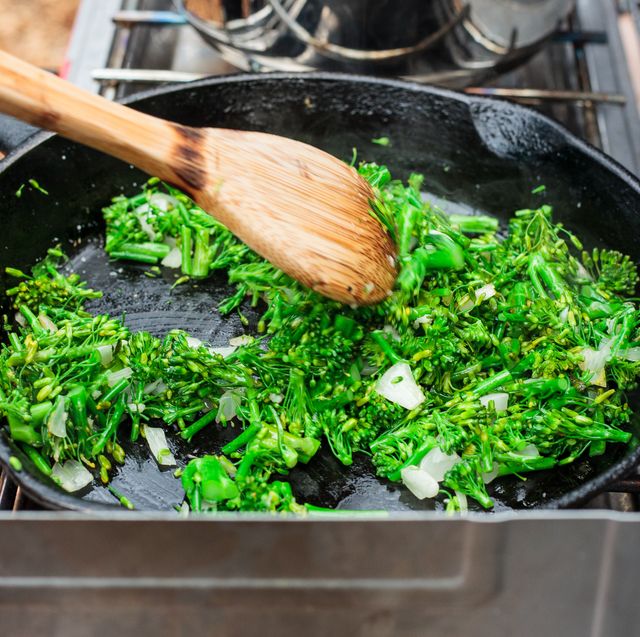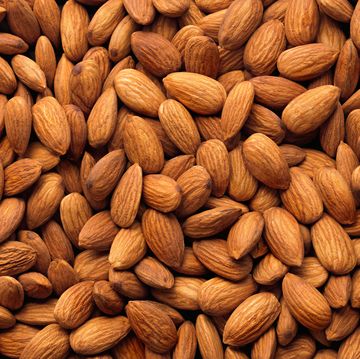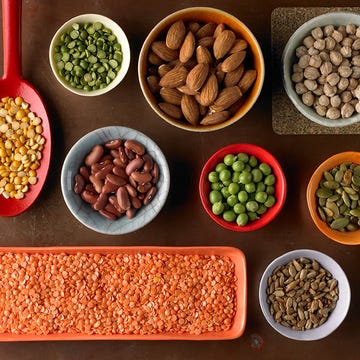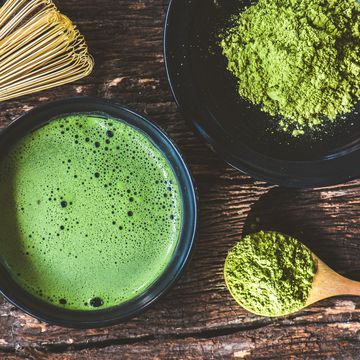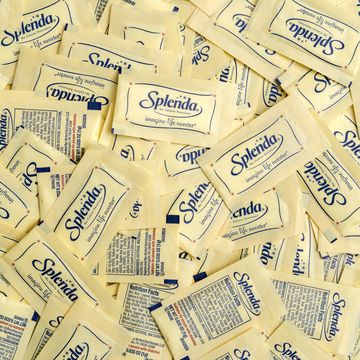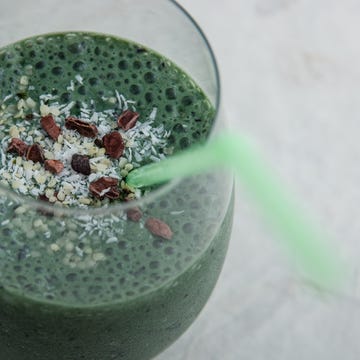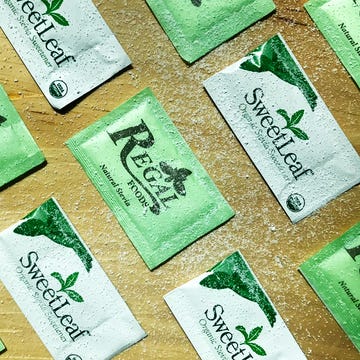- A new systematic review and meta-analysis found a link between those who eat nuts and seeds and a lower risk of cardiovascular disease—it could reduce risk by nearly 25 percent.
- Nuts and seeds provide other benefits to your health, too, including lowering inflammation.
If you’re fond of throwing some nuts and seeds into a postrun mix for a quick burst of protein and healthy fats, you might be getting even more advantages than you realize. A new research review suggests even a modest amount of these foods daily could add up to lower risk of cardiovascular disease.
Published in Food & Nutrition Research, the systematic review and meta-analysis included 42 cohort studies and 18 randomized controlled trials, including a total of more than one million participants. The research mainly focused on comparing health outcomes, including incidence of cardiovascular disease, between people with high nut and seed consumption and those who ate low amounts or none at all.
They found a significant association between the nuts and seeds eaters and better heart health. For example, eating about 30 grams of nuts—which is about a small handful, such as 15 cashews or 20 almonds—could lower risk of cardiovascular disease by nearly 25 percent, the researchers noted.
Although potential mechanisms weren’t covered in the study, the researchers added that this result likely stems from the way that nuts and seeds improve cholesterol levels, one of the biggest factors in increased risk of heart attacks.
This study adds to breadth of research connecting nuts and seeds to improved health markers overall. For example, a study from the Linus Pauling Institute at Oregon State University found that options like sunflower seeds, almonds, and hazelnuts are all rich sources of naturally occurring vitamin E, which helps reduce risk of age-related macular degeneration, fatty liver disease, and cancer, as well as cardiovascular disease.
Another study, published in the Journal of the American College of Cardiology, and supported by the California Walnut Commission, looked at about 600 healthy older adults who ate between 1 to 2 ounces of walnuts daily for two years.
Those who ate the walnuts consistently had reduced inflammation markers in their blood, compared to those who didn’t eat the nuts. Because inflammation plays a major role in coronary heart disease, this is a notable finding, according to the lead researcher of that study, Emilio Ros, M.D., Ph.D., director of the Lipid Clinic at the Hospital Clinic of Barcelona.
“Chronic inflammation is detrimental to heart function,” Ros told Runner’s World. “What our study, and other research, has found is that nuts can play a large role in reducing that type of inflammation naturally.”
Another benefit to nuts and seeds is that they bring more fiber into a diet. It’s difficult to overstate the importance of fiber for cardiovascular function, according to Adriana Quinones-Camacho, M.D., cardiologist at NYU Langone Health in New York. Adding nuts and seeds into a larger, Mediterranean-style eating plan helps to combine a high amount of fiber with a wealth of other nutrients that are cardioprotective, she told Runner’s World.
“Although you can get fiber, vitamins, and minerals through supplements, it’s preferable to choose healthy foods as much as possible,” she said. “Getting into the habit of adding options like nuts, seeds, and vegetables into meals and snacks can go a long way toward lowering risk of cardiovascular issues.”
Elizabeth Millard is a freelance writer focusing on health, wellness, fitness, and food.

